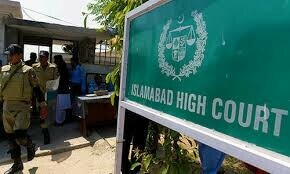ISLAMABAD: Brought up in a poor area and having never been to school, 55-year-old Saleha Bibi on Wednesday told a conference about her journey towards becoming an agent of change in rural Balochistan.
She also highlighted the problems her area is facing at a session hosted by the Pakistan Poverty Alleviation Fund (PPAF) for her and Asyah Nasir, so they can talk about their experiences working as a social activists in their areas.
Saleha Bibi and Asyah Nasir are members of local support organisations established by PPAF under their umbrella project, Programme for Poverty Reduction (PPR), which aims to reduce poverty through the creation of sustainable conditions of social and economic development.
The programme is financed by the Italian government and is being implemented through 17 partner organisations in 14 districts of Balochistan and Khyber Pakhtunkhwa.
Saleha Bibi had come to Islamabad for the first time.
“I could not even dream of coming to Islamabad as this is something out of the question for any woman from my area. With the help of this organisation and hard work, I am achieving something every day, which was considered impossible in our area,” she said.
She said all 55 households in her village are extremely poor and have little access to education, health and other socio-economic opportunities.
The mother of five is now assisting her community in availing opportunities for making livelihoods, education, health and hygiene and improve their living standards. She is also the vice president of the local support organisation Bank Murad in Lasbela.
She said the condition of the government schools is not good and that the behaviour of teachers is not professional.
“The teachers and midwives need training as we do not have any good hospitals nearby and due to the security situation, motorists do not give lifts to women in labour so they could get to the hospital after dark,” she said.
Asyah Nasir, who had come from Gwadar, said she had witnessed extreme poverty and lack of basic facilities such as education, health and infrastructure. She said she resigned from her job and started her own organisation in 2015 which was recognised under PPR and that she is now manager of her community organisation Raiksar Bazaar Mundi.
Ms Nasir also teaches at a school which she started with 20 students and now has 115.
“I am still the only teacher at this school as we do not have anyone there qualified to teach. We also still do not have any government schools in our areas. They announced a few days ago that a government school will be established there,” she said.
Ms Nasir was a medical technician and worked at Pakistan Navy Ship Shifa Karachi. She started the school when she returned to her village and became the community resource person for health, nutrition and mother and child health.
Published in Dawn, May 17th, 2018











































Dear visitor, the comments section is undergoing an overhaul and will return soon.